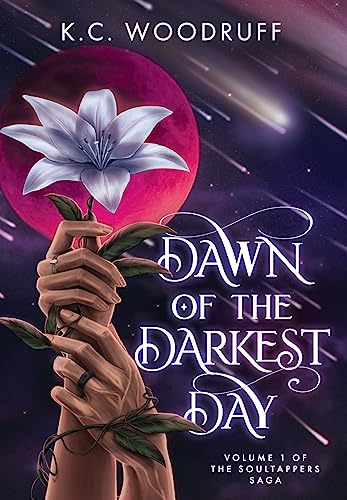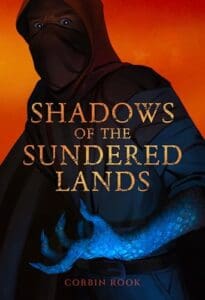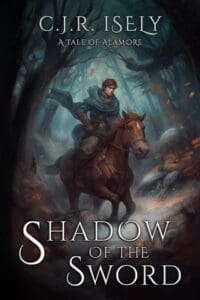
Synopsys
An artist plagued by a violent past.
An heir destined to never take her own throne.
A tyrant bound to life, consumed by his bloody trail.
Dawn breaks over a dying land.
Ever since surviving the bloody coup that cost Ara her home and Stedd his family, they’ve found solace in each other’s arms, dreaming of a life where Ara can cultivate her gardening and engineering talents while Stedd flourishes in his art. But the old magic that once held Evenia together has long faded, and when King Vayne Savant learns of Ara’s godly heritage and royal bloodline, she turns from a budding engineer into a reluctant bride, and a pawn in his cunning plan to dominate the continent amid its technological collapse.
Desperate to escape her husband’s bloodstained grasp, Ara strikes a dark deal with the king: a child—the heir to two thrones—in exchange for her freedom. Her plan should have been simple, but in between sieges, squabbling, and sessions of pleasure are nights spent waking to assassins’ blades at her throat and the threat of sinister societies formidable enough to outsmart even Savant’s cunning.
Unwilling to lose Ara, Stedd sets down his paintbrush and picks up a blade, entering a war he doesn’t understand. But the line between love and hatred is a thin one, and Stedd soon finds himself torn between rescuing the love of his life or pursuing revenge on the man who destroyed it.
The fate of the continent lies in the hands of a ruthless conqueror and a pacifistic queen, their destinies far more than they understand. If they can find common ground, Evenia may be saved. But the obstacles that lie in their wake are more than they can anticipate, and the consequences for failure greater than they could imagine.
Content warnings: Attempted suicide, blood, consensual open-door sex, death, gaslighting, language, marital abuse, marital infidelity, parental / familial manipulation, physical and verbal abuse, pregnancy/childbirth, self-harm, suicidal ideation, torture, violence, child death (mentioned). Also, off-page death, dubious consent, rape, miscarriage, and abortion.
Quick Review
Dawn of the Darkest Day is a dark romance with some creative worldbuilding that made it easy to lose track of time while reading. Despite a few nit-picks that I have, this is a triumphant debut, and has the potential to become an addicting series.
Full Review
Dawn of the Darkest Day is mainly focused on the relationship between Ara and King Vayne Savant. It is a rivalry and romance born out of political interests and lies. As a result, Ara is often in a great deal of physical or emotional pain. Vayne often comes off as indifferent to or simply annoyed by that. The author never shies away from this turbulent start, the deal they strike, or the rare moments of genuine passion they share later in the book.
And just to be clear—there is a lot of passion. This probably isn’t the spiciest thing out there but a few scenes got quite detailed.
Speaking of characters making mistakes, author K.C. Woodruff is excellent at not passing judgment in her writing. She lets each character screw up. That’s good, as far as I’m concerned. Their mistakes and having to deal with the consequences makes the story feel more grounded.
However, it sometimes feels like Dawn of the Darkest Day is trying to do too much at once, and thus progressing too slowly. There’s no one thing that left me feeling this way, so I’m going to have to rant just a little bit.
During the book’s opening chapters, Woodruff lays down the ground rules: there are two vaguely elven species who live together, but have very different lifespans. That, plus some very similar names, and a crash-course in the predominant religion of the two peoples, and two dying magic systems, makes the book a little dense at first. However, it gets easier, and I appreciate the fact that the author is going for something that’s entirely her own.
Ara and Vayne’s relationship is interesting. When she is wed against her will to him we’re told he is evil, and we’re given some strong evidence for that, given his war for conquest. However, it becomes clear that there’s more going on. Vayne isn’t evil so much as he’s practical. If he sees a problem, he strives to fix it. We see this early on as he tries to comfort Ara, and gets her a luxurious harp within hours of finding out she loves to play. It is a lovely gift and one that appears well-meaning; however he is equally efficient at resolving problems which require bloodshed. Ara eventually tries to become his moral compass, of sorts, and help him govern.
At the same time, we occasionally get a glimpse through Stedd’s point of view, the man who Ara originally wanted to marry. He ends up in a complicated relationship of his own with a member of the Grace’s Guard, Alys. He proceeds to spend the majority of the book struggling to choose between her and Ara.
This theme of being pulled in two directions—Ara wanting to go home and also help Vayne govern; Stedd wanting to stay with Alys or return to Ara—becomes a running theme. Every character grows in the process of figuring out what they want. However, personally, Ara and Stedd both came off as a bit immature. That, plus the way these plots repeated themselves, left me feeling frustrated with them both. I was hoping that the conclusion would wrap up some of this indecision, but it only served to carry it into the sequel, from what I can tell.
All of that worldbuilding, war, and the religions I mentioned kind of get pushed to the side during all of this. I wish some more time was given to these legitimately interesting parts of the setting and story, rather than the cyclic relationships. However, the ending suggests all of this will be more impactful as the series continues, which seems promising.
All that said, Dawn of the Darkest Day was an easy, addicting read. K. C. Woodruff is writing a series that has a wealth of potential and while I clearly didn’t gel with everything in here, Dawn has spurred me to want to read more stories like it. It is an impressive debut and I will be looking for the next book in the Soultappers Saga.










Leave a Reply